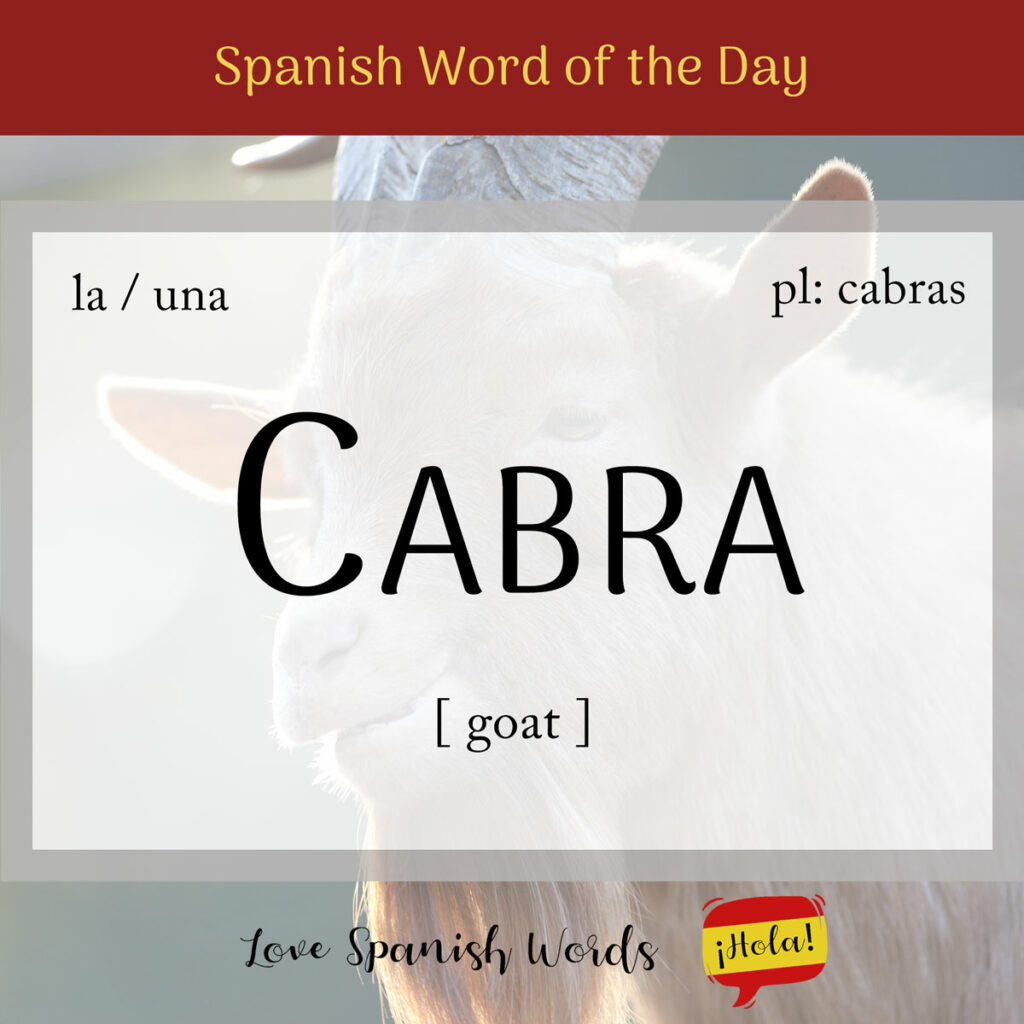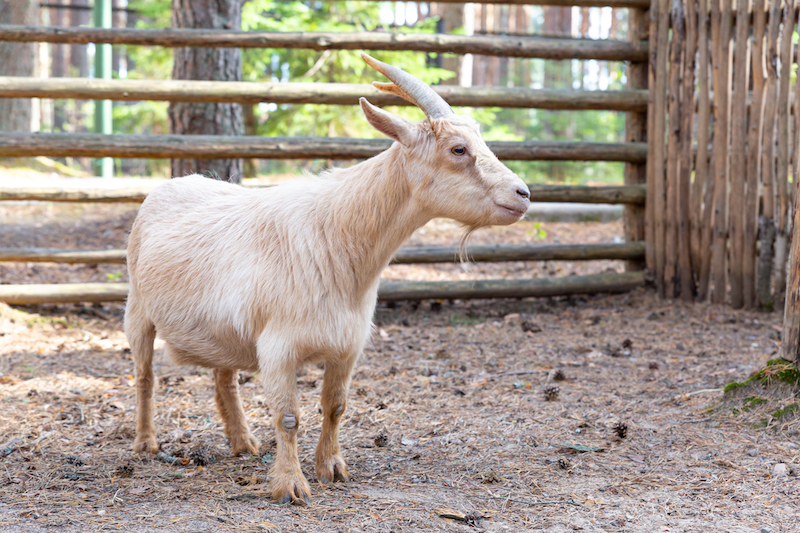Goats, known as cabras in Spanish, are commonly raised in rural areas across Spain and Latin America. They are highly valued for their leche (milk), carne (meat), and pieles (hides), contributing to local economies and traditional agricultural practices. Keen to find out more about this Spanish word? Then keep reading!
Latin American Pronunciation
European Pronunciation

The word was inherited from the Old Spanish cabra, which in turn comes from Latin capra.
Cabra is a feminine noun, so it takes the following definite and indefinite articles:
- la cabra = the goat
- las cabras = the goats
- una cabra = a goat
- unas cabras = some goats
Las cabras están pastando en el campo.
The goats are grazing in the field.
There are many different breeds and types of goats with which you may be familiar. Here are some of the most popular:
- cabra de angora = angora goat
- cabra montés = wild goat / chamois / Spanish ibex
- cabra blanca / cabra de las Rocosas = mountain goat
- cabra macho = billy goat
- cabra hembra = nanny goat

Did you know that…?
In Spain, there is a town called Cabra, situated in the province of Cordoba.
However, according to the official Andalucia website, it is unlikely that the local goats inspired this name. Rather, it is thought to derive from the name of local 10th century poet Al-Cabri.
In addition to being a common farm animal, the cabra is also a popular dish. In northern Mexico, for example, you can enjoy cabrito (young goat), which is roasted and served in various traditional recipes such as cabrito al pastor (goat on a spit), cabrito al horno (oven-roasted goat), cabrito en salsa (goat in sauce) and cabrito en sangre (goat in blood).
Foods derived from goats are also popular. The two most most well-known examples are leche de cabra (goat milk) and queso de cabra (goat cheese), whose distinct flavour makes it a staple in Spanish cuisine.
Soy alérgica al queso de cabra.
I’m allergic to goat cheese.


Did you know that…?
The figure of the chupacabra (literally “goat-sucker”) is a legendary creature in Latin American folklore that is said to attack livestock, especially goats, and drink their blood. You could call it the Dracula of the goat world!
The word cabra loca (mad goat) is a figurative way to refer to a madman or madwoman.
Note: Cabrá with an accent on the à is also the third-person future form of the verb caber (to fit).
Spanish idioms and proverbs featuring ‘cabra’
La cabra siempre tira al monte
Literal translation: The goat always heads for the mountain
English meaning: You can’t make a leopard change its spots
Estar como una cabra
Literal translation: to be like a goat
English meaning: to be off one’s head
Estar más loco que una cabra
Literal translation: to be crazier than a goat
English meaning: crazy as a loon or mad as a hatter

